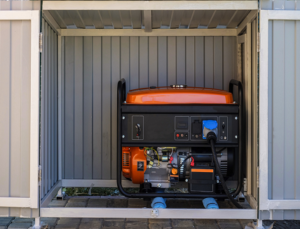
One study shows the United States has more blackouts per year versus any other developed nation. These power outages are primarily due to an aging infrastructure. Some power lines have been in place since the late 1800s or early 1900s.
Thankfully, portable generators have been helping Americans reduce the effect power outages have on their homes. Even better, a portable power source has a wide range of use that depends mainly on how big it is.
But how to choose the best portable generator for your situation? Continue reading to learn the most significant factors to look for when making a generator purchase.
Understanding “Size” in Portable Generators
Buyers should understand the word “size” in generators doesn’t refer to the physical dimensions. Instead, it relates to the power it provides. Generator sizes can range from under 2,000 watts to more than 7,000 watts.
Determining Need Based on Usage
The most important thing to do before buying a portable power source is determining what it’ll be used for. This will determine the necessary size.
Small Power Source
Small portable generators are suitable for occasional use, like outdoor recreational activities (such as camping or family reunions). They can charge small electrical devices like cell phones or flashlights. Small generators may also be used to run one small kitchen device, like a coffee pot, at a time.
Medium Power Source
Medium portable generators are suitable for more regular use or in situations where more power may be necessary. They make an excellent choice for RVs or job sites. Medium generators can also be used as a backup power source specifically for a fridge, freezer, or TV.
Large Power Source
Large portable generators are suitable for irregular but high-power situations. These are the best options for backup power sources for homes or offices when people hope to run lights, appliances, and more through power outages.
Choosing a Fuel Type
Portable generators run off different fuel types. While gas is the most common option, those ran off diesel are significantly more efficient and can run longer off a full tank. Battery-powered generators are another useful option, with some even refueling off solar energy.
There is no right or wrong answer for fuel types. The answer to which is best for you will be based on individual preference and fuel availability.
Finding the Balance Between Portable and Permanent
Although portable generators can be moved around as needed, some people will need them in a single place for longer durations. For example, when using a larger, bulkier generator as a backup power source.
If a portable generator remains in one place, owners may want to choose professional generator installation. This ensures the generator is hooked up the right way in situations where it’ll be used as a backup power source. It also ensures the generator is installed in an appropriate location.
More Questions About Buying a Portable Power Source?
Buying a portable power source provides a level of security and convenience during commonly occurring power outages. Determining the best one will depend mainly on what you plan to use it for.
Do you have more questions about buying a portable power source?
Check out our other blogs. You’ll find articles on portable power sources, generators, and similar topics to help you dive further into the subject.


















